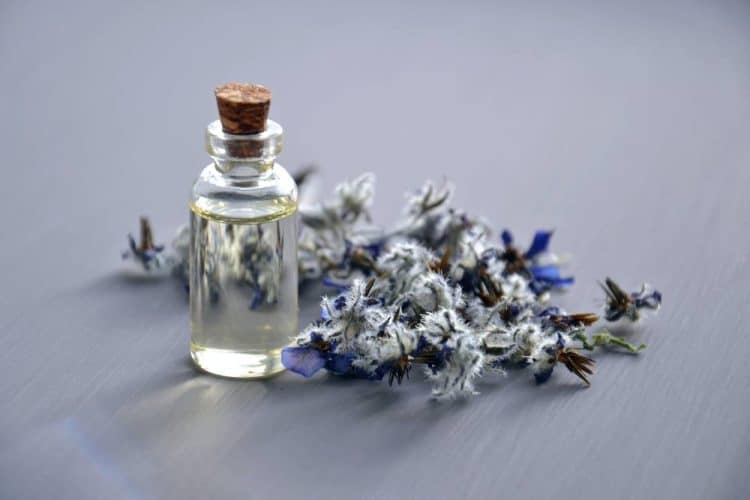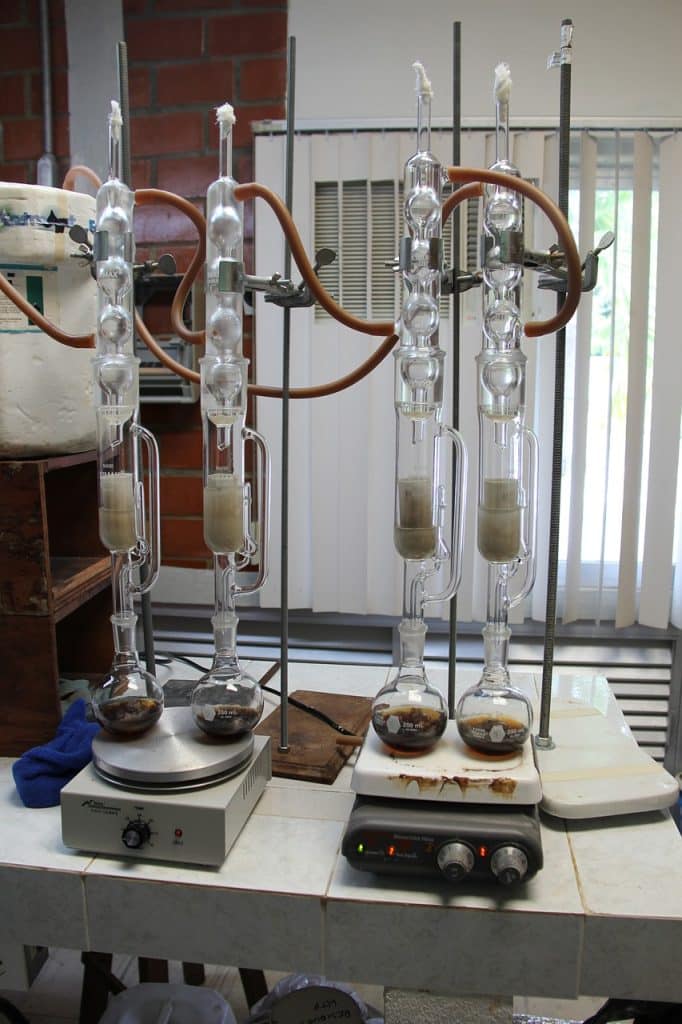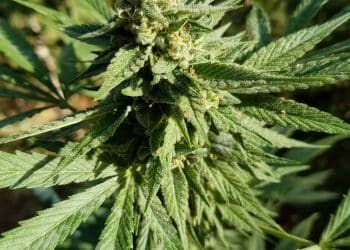Herbal distillates, also known as hydrosols, are aromatic waters produced through the process of steam distillation. These botanical extracts offer a myriad of uses ranging from skincare applications to culinary enhancements. With their gentle nature, they serve as an accessible entry point for those exploring natural remedies and holistic health practices. This exploration into herbal distillates will unveil their production methods, diverse applications, and the benefits they hold over synthetic alternatives. As we delve deeper, readers will gain insight into how these potent liquids can be integrated into daily routines for improved wellness and vitality.
Understanding Herbal Distillates
Herbal distillates are water-based plant extracts. They come from a process where plants are distilled with water to capture their essence. This method preserves the plant’s beneficial properties in a mild and versatile form. Unlike essential oils, herbal distillates have a lower concentration. Essential oils are potent and used in small amounts. Herbal distillates can be applied more liberally due to their gentle nature. They serve as facial toners, in aromatherapy, or even in cooking for flavoring.
The history of herbal distillates stretches back centuries. People have used them across different cultures for their therapeutic benefits. For instance, rosewater has been popular in Middle Eastern cuisine and skincare routines for its soothing properties.
Production and Usage of Herbal Distillates
The commercial production of herbal distillates involves a process known as steam distillation. This method extracts the volatile compounds from plant material, resulting in a watery distillate rich in the plant’s essence. Manufacturers use specialized equipment to heat water into steam, which then passes through herb-packed chambers. As the steam cools into liquid form, it carries with it the aromatic and therapeutic properties of the herbs.
Common plants used in this process include lavender, rosemary, peppermint, and chamomile. These herbs are favored for their strong scents and beneficial effects on health. The choice of plant material significantly influences the final product’s application and efficacy. Herbal distillates find applications across various industries due to their versatility and natural origins. In cosmetics, they serve as gentle facial toners or ingredients in skincare products that soothe and hydrate skin. The food industry incorporates these fragrant liquids into recipes as flavor enhancers or natural preservatives:
-
Lavender water for soothing skin;
-
Rosewater in Middle Eastern desserts.
Moreover, herbal distillates play a role in alternative medicine where they’re used for their supposed healing properties. They can be found in decoctions aimed at treating minor ailments like colds or stomach upset.
Distillation Process and Its Function
The distillation process is crucial in the production of herbal distillates. Steam distillation stands out as the primary method for extracting these valuable liquids. This technique involves passing hot steam through plant materials. The heat causes the plant’s volatile compounds to evaporate into a vapor, which then cools and condenses back into a liquid form. Temperature control plays a vital role in this process. It ensures that delicate plant compounds are preserved during extraction. Too high temperatures can destroy these compounds, while too low temperatures might not release them effectively from the plant material.
The separation of volatile from non-volatile components is another key function of distillation. Volatile components are those that can easily turn into gas at lower temperatures, such as essential oils and aromatic compounds found in plants. Non-volatile components do not evaporate easily and include substances like waxes and certain organic acids. Pros
-
Preserves the integrity of heat-sensitive compounds;
-
Allows for the separation of volatile essentials from non-volatile substances.
‘
Cons:
-
Requires precise temperature control;;
-
May not be suitable for all types of herbal materials.
In essence, the distillation process enhances both purity and concentration of herbal extracts by isolating desired liquid constituents from raw botanicals. Through careful temperature management, it ensures that only beneficial properties are extracted while leaving behind unwanted elements.
Science Behind Herbal Distillates
Herbal distillates owe their benefits to a rich chemical composition. Terpenes, esters, and alcohols are key substances in these botanical waters. Each plays a unique role in how herbal distillates interact with the body and environment. Terpenes, for example, offer soothing aromas and can support skin health. Esters contribute to the pleasant fragrance of many distillates and have calming effects on the skin. Alcohols, present in small amounts, act as natural preservatives.
These components make herbal distillates more than just fragrant waters. They enable these botanical products to interact positively with human skin and immune systems. The terpenes can help reduce inflammation, promoting healthier skin conditions. Esters add an extra layer of protection by moisturizing and softening the skin without causing irritation.
Moreover, herbal distillates possess impressive preservation properties due to their antimicrobial compounds. These substances inhibit the growth of bacteria and fungi which makes them excellent natural preservatives for skincare formulations or even food products. Benefits include:
-
Reduction of inflammation;
-
Moisturization without irritation;
-
Natural preservation.
The interaction between these chemical components and biological systems underlines why herbal distillates are valued in various industries—from cosmetics to culinary arts. In essence, understanding the science behind herbal distillates highlights their multifaceted utility beyond mere aroma or flavor enhancers.
 Benefits and Uses in Skincare and Health
Benefits and Uses in Skincare and Health
Herbal distillates offer significant benefits for both skincare and health. These natural compounds are gentle yet effective, making them suitable for various uses. For skincare purposes, they can deeply hydrate the skin while balancing its pH levels. This is crucial because a balanced pH helps protect the skin from bacteria and pollution.
Many people use herbal distillates as part of their daily skincare routine. They apply it to their face with a cotton pad or spray it directly using a glass bottle. This simple step can soothe irritations and improve overall skin health over time. The anti-inflammatory properties of these distillates also aid in managing skin conditions like acne or eczema:
-
Soothe Irritations.
For health benefits, consuming certain herbal distillates under guidance can support digestion. They work by calming the digestive system and may alleviate issues such as bloating or indigestion. However, not all herbal distillates are safe for consumption. It’s important to research or consult with a professional before adding any new product to your diet or skincare regimen.
Herbal Distillates for Skincare
Herbal distillates, also known as herbal waters or hydrosols, play a crucial role in skincare routines. These products are gentle yet effective alternatives to traditional skincare items. They are created during the process of distilling essential oils from plants. Rosewater is one of the most popular herbal distillates for skincare. It is renowned for its toning and hydrating properties. When applied to the skin, rosewater helps balance pH levels and refreshes the skin without stripping it of natural oils. This makes it an excellent choice for all skin types, particularly those with dry or sensitive conditions.
Lavender hydrosol offers another soothing option for sensitive skin. Its calming effects help reduce redness and irritation. Lavender’s anti-inflammatory properties make it ideal not just for facial care but also as a remedy for sunburns or minor cuts. Witch hazel distillate stands out as a natural treatment for acne-prone skin due to its astringent qualities. It effectively cleanses the pores by removing excess oil and impurities without over-drying the skin.
Choosing the Right Herbal Distillate for Your Skin Type
Selecting an appropriate herbal distillate depends on understanding your skin type. Oily, dry, and combination are the main categories. Each requires a different approach. For oily skin, look for distillates like witch hazel or rosemary. They help control excess oil without drying out the skin too much. Dry skin benefits from more hydrating options such as rose or chamomile water. These provide moisture and soothe irritation. If you have combination skin, lavender or geranium can balance both oily and dry areas effectively.
Before integrating any herbal distillate into your routine, it’s crucial to perform a patch test. Apply a small amount on your forearm first to check for adverse reactions over 24 hours. Be mindful of allergies or plant sensitivities when choosing a distillate. Even natural ingredients can cause reactions in sensitive individuals:
-
For oily skin: Witch Hazel, Rosemary
-
For dry skin: Rose Water, Chamomile
-
For combination skin: Lavender, Geranium
Remember to read labels carefully and opt for pure forms of these distillates without added chemicals which could irritate the skin further.
Potential Health Risks and Safety Considerations
Herbal distillates offer numerous benefits for skin care, as discussed in the previous section. However, they also come with potential health risks that should not be ignored. Improper dilution or application can lead to adverse effects. For instance, applying a concentrated distillate directly onto the skin might cause irritations or allergic reactions in some individuals. This is mainly because the volatile compounds, which give plants their aroma and properties, are highly potent.
To avoid such issues, it’s crucial to follow recommended dilution ratios closely. Also, understanding how long and at what temperatures these products have been distilled can impact their safety and efficacy. High temperatures may degrade certain beneficial components over time. Another significant concern is the risk of bacterial growth within herbal distillates if not stored properly or used within a certain timeframe after opening. This underscores the importance of sourcing from reputable manufacturers who adhere to strict quality control measures.
Summary
Herbal distillates, with their rich history and multifaceted applications, have been thoroughly explored from their production to their usage in skincare and health. The distillation process, crucial for extracting the essence of herbs, underscores the science behind these potent botanical waters. Highlighting their benefits, this article navigated through the realms of skincare enhancements and health improvements, offering insights into selecting appropriate distillates for different skin types while addressing potential health risks. It ventured into the rewarding process of creating personal hydrosols.

 Benefits and Uses in Skincare and Health
Benefits and Uses in Skincare and Health









